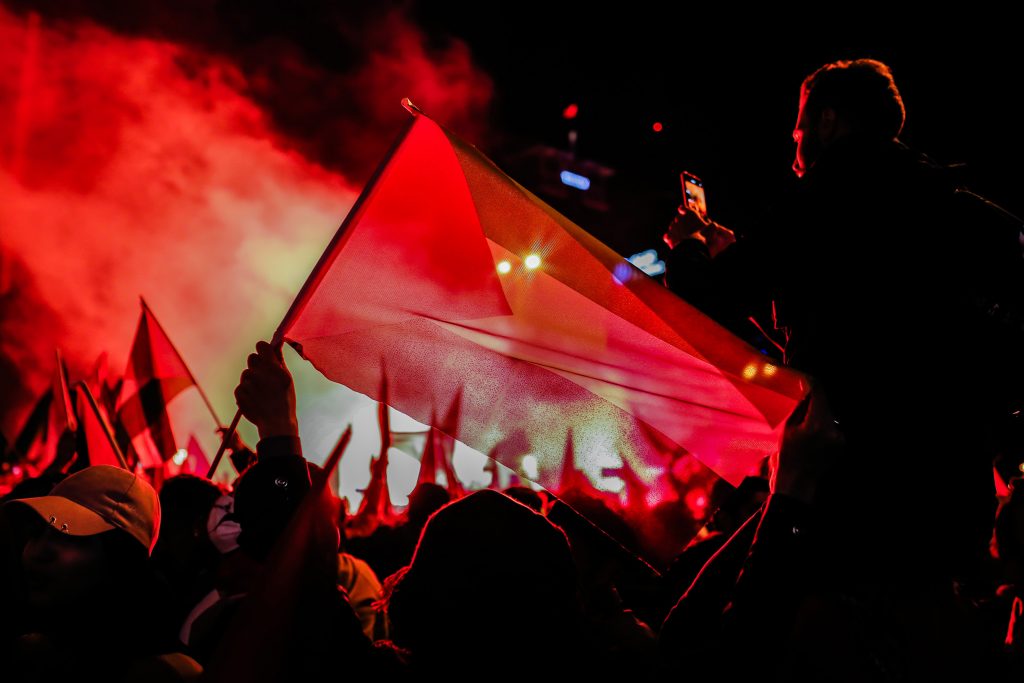Don’t be afraid to stand for the truth
As we see and witness issues all over the world concerning human rights, racism and demand for freedom, let’s focus on the stance that we have on these issues.
There are numerous human rights concerns going on around the world. Unfortunately, there are so many human rights violations that we see on the news, and many more that we don’t see that innocent civilians must face every day. Once we educate ourselves on these issues, we must choose the side of justice to take a stance.
The state of Israel is killing innocent Palestinians. The Chinese Communist Party is holding millions of innocent Uyghur Turks in concentration camps in East Turkestan. A girl’s school was recently bombed in Afghanistan, killing over 60 people. Over 2 million children suffer from acute malnutrition in Yemen. This is not even half of what is occurring in the world.
We do not have the capacity to actively advocate for every single issue, and that is completely okay. What we can do is learn how to be a good ally for the oppressed. We can choose an issue we are passionate about and advocate to the best of our ability.
Even if we cannot be actively engaged in every issue, what we should refrain from doing is staying neutral in critical issues, with a recent and important example of Palestine. “If you are neutral in situations of injustice, you have chosen the side of the oppressor,” said Desmond Tutu, a South African Anglican cleric and theologian.
We may refrain from choosing a side until we receive accurate information about an issue, but refusing to educate ourselves about the atrocities being committed against innocent people shows that we are privileged.
“Not being into politics” is not the correct way to go about addressing and acknowledging these human rights violations. It’s not politics, it’s people being murdered while our country supports the state that commits the murder. It is a huge privilege to be able to “not be into politics” as our country sends $3.8 billion to the state that is occupying, colonizing and murdering indeginous people, sound familiar?
Israel’s attacks on Palestinians have been branded as a conflict, this portrayal by the mainstream media has made it so when the issue comes to attention, it is seen as two states at war, or even as Israel “defending” itself. Well, when Israel has what is known as the Iron Dome, part of a multi-million dollar, multi-tiered missile defense system to protect itself while Palestine doesn’t even have an army, how much “self-defense” is needed?
Yes, people on both sides did die. Of course, every life is important. No life is dispensable. But right now, Israel is ethnically cleansing Palestinians from their own land and the world needs to acknowledge this. With the current rise of the topic of antisemitism in the media, we need to understand this; this has nothing to do with religion, and antisemitism is never okay. Instead, we should focus our efforts on critiquing the state of Israel. The state does not stand for all peoples, what they have been doing since 1948 and the atrocities committed towards Palestinians are heinous human rights violations.
Users have brought up censorship on Instagram when posting about Palestine, with a decrease in story views or posts reaching broad audiences. Additionally, the way that the issue is portrayed in the media is especially important to note. The terms that are used to describe what is happening affects the way our brains intake and understand the information, which can mislead us to think it is both sided, that Palestine is “violently” fighting back, that the state of Israel is in the right, etc.
To expand on how Palestine can be silenced in U.S. news, let’s look at an article by Dr. Maha Nassar, an Associate Professor in the School of Middle Eastern and North African Studies at the University of Arizona.
Maha’s article, “US media talks a lot about Palestinians — just without Palestinians,” provides information regarding the lack of media coverage of Palestinian voices. This is evident through the use of major news outlets as examples along with a table that showed lacking inclusion of opinion pieces by or about Palestinians ranging from 1970 to 2019.
“Moreover, the silencing of Palestinians is part of a larger problem of systemic bias and lack of diversity in journalism, particularly at elite news outlets. It is not just Palestinians: Black, Indigenous, Latin American, Asian American, and other people of color face ongoing racism in the newsroom, making it more difficult for alternative perspectives to make their way into these influential pages,” said Dr. Maha.
It is time to give and create those spaces for Palestinian voices. What we need to work toward all together is Palestinian liberation and acknowledging their identity and land.
Standing up for what’s right might seem confusing, hard and maybe even scary. But staying neutral will not benefit us in any way. We may have a fear of people disagreeing with us, we may be reluctant to challenge the mindset of our loved ones who think differently from us. If we have a fear of losing friends or relationships for standing up for what is right, then it’s a sign we need to change the spaces that we occupy. The best way to seek validation if you’re doing the right thing is asking your heart, surely you will guide yourself to the truthful place.



